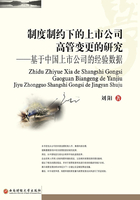It results therefore from this analysis, that a complete sense of the merit of an action, or the feeling of perfect moral approbation, is really "a compounded sentiment," made up of two distinct sympathetic emotions, namely, of a direct sympathy with the sentiments of the agent, and an indirect sympathy with the gratitude of those who receive the benefit of his actions.
Take our sense of the good desert of a particular character in historyScipio, Timoleon, or Aristides. In imagination we become those very persons, and, by a direct sympathy with them, enter into their designs, and feel the same generous sentiments that they felt. But we also by an indirect sympathy feel the benefit of their great actions, and enter into the gratitude of those who experienced them. The sympathetic emotions of gratitude and love, which we thus feel when we bring home to our own breast the situation of those originally concerned, account for our whole sense of the merit of such actions, and for our desire of their meeting with a fitting recompence.
In the same way a complete sense of the demerit of an action is a compounded sentiment made up of two distinct emotions; of a direct antipathy to the sentiments of the agent, and an indirect sympathy with the resentment of the sufferer. We feel a direct antipathy to the detestable sentiments which actuated a Borgia or a Nero, while we sympathize indirectly with the resentment of those they afflicted. Our sense of the atrocity of their conduct, and our delight in hearing of its punishmentin short, our whole feeling of ill desert, and of the justice of inflicting evil on the person who is guilty of it, and of making him grieve in his turnarises from the sympathetic indignation which boils up in our breast whenever we thoroughly bring home to ourselves the case of the sufferer.
Nor is it any degradation of our sense of the demerit of actions to ascribe it to our sympathy with the resentment of another. Resentment is in every respect the counterpart of gratitude, and if our sense of merit arises from our sympathy with the one, our sense of demerit may well arise from our sympathy with the other. Resentment, too, as a principle of human nature, is only evil when it appears in excess as revenge; and as it is excessive a hundred times for once that it is moderate, we are apt to consider it altogether detestable, because in its ordinary manifestation it is so.
But it is not disapproved of when properly humbled, and entirely brought down to the level of the sympathetic indignation of the spectator. When we as bystanders entertain an animosity corresponding to that of the sufferer, when his resentment in no respect exceeds our own, when no word nor gesture escapes him that denotes an emotion more violent than we can share, and when he never aims at inflicting a punishment severer than that we should rejoice to see inflicted or would inflict ourselves, it is impossible that we should not entirely approve of his sentiments.
It appears then in Adam Smith's theory, that the element of morality in actions only really arises from reference to their tendency. The sentiment or affection of the heart from which all action results may in relation to its cause or motive be regarded as unsuitable or disproportionate, according as it exceeds or falls short of that mean point with which the general observer can sympathize. It may be thus approved or disapproved as proper or improper, but it is not applauded or condemned as moral or immoral.
An anger which is out of proportion to the cause of its provocation, a state of joy or sorrow out of keeping with their origin, a generosity or benevolence that seem excessive, are blamed not as immoral, but as out of harmony with the feelings of a spectator. So with reference to the bodily passions, it is the office of temperance to confine them within those limits "which grace, which propriety, which delicacy, and modesty require," (not within those which morality require). It is only when regard is paid to the effects which flow from different actions, that a stronger feeling appears, a feeling not merely of propriety or im- propriety, but of their merit or demerit, or in other words, of their moral worth or the contrary.
It is only actions of a beneficent tendency , which proceed from proper motives, that are thus meritorious, for such actions alone seem to deserve a reward, from the gratitude they command from a spectator through sympathy. And it is only actions of a hurtful tendency , which proceed from improper motives, that seem really wicked, for they alone seem to deserve a punishment, from the resentment they inspire a spectator with by sympathy.
Adam Smith illustrates his theory that the wrongfulness or demerit of actions depends on our sense of their deserving to be punished by the two virtues of beneficence and justice. The mere want of beneficence, the neglect to do the good expected of one, may give rise to feelings of dislike and dis- approbation, but as it does no real positive evil, it provokes no feeling of sympathetic resentment. Take a case of the blackest ingratitude, where a man fails to recompense his benefactor, when the latter stands in great need of his assistance. Every impartial spectator rejects all fellow-feeling with the selfishness of his motives, and he is the proper object of the highest disapprobation. Still since he does no positive hurt, but only neglects to do the good he might, he is the object of hatred, not of resentment, two passions which differ in this respect, that whilst the former is called forth by impropriety of sentiment and behaviour, the latter is only provoked by actions which tend to do real and positive hurt to some particular persons. Ingratitude therefore cannot be punished.
It is improper, and meets with the disapprobation of the spectator, but it is not wrong or immoral, in. the sense in which it would be, if it went a step further, and raised a feeling of resentment by actual hurtfulness of tendency against somebody.















